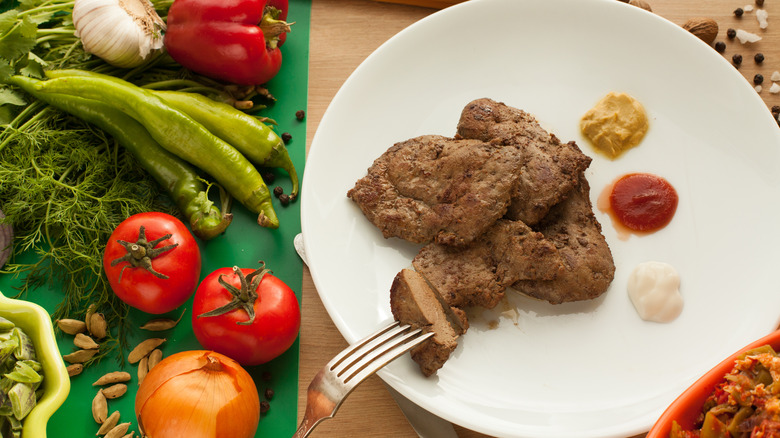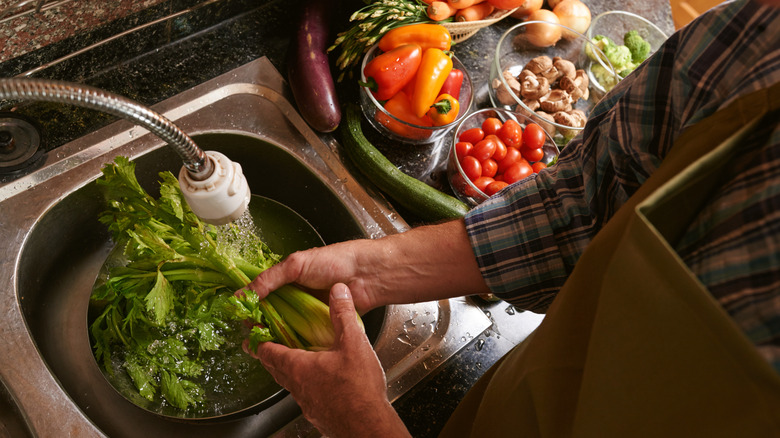Are You More Likely To Get Food Poisoning From Meat Or Vegetables?
When you think of food items most likely to give you food poisoning and a tummy ache, you're probably thinking of raw or undercooked meat, and you have good reason to think so. Healthline reports that 41-84% of raw chicken sold in grocery stores across the U.S., U.K., and Ireland were contaminated with campylobacter and 4-5% with salmonella. Both bacteria found in raw meat could lead to food poisoning if not cooked thoroughly and consumed. So, if you're thinking that raw meat can send you to the hospital with food poisoning, you're right in thinking so.
Surprisingly, however, there's one other food group that is equally responsible for food poisoning, if not more. Of the 48 million people in the United States who report falling sick after having eaten something bad each year, almost half of the cases are caused by produce (via Smithsonian Magazine). Yup, you read it right. The CDC found that half of all food poisoning cases reported between 1998 and 2008 were a result of consuming fruits, root vegetables, nuts, and leafy greens, which together make a food group that causes more food-related illnesses than any other item. Nearly 21% of all food poising cases are caused by vegetables: 8% from leafy greens, 7% from seeded veggies, and 2% percent from herbs, sprouts, and root veggies each (via Eat This, Not That).
Grouped together, vegetables can cause more harm than chicken, which amounts to about 12% of all food-related illnesses.
The safest way to eat vegetables is by cooking them
According to Healthline, vegetables can be contaminated with E. coli, salmonella, and listeria. While E. coli is relatively less harmful, salmonella makes 1 million Americans sick each year and kills 450 (via Smithsonian Magazine). Listeria, on the other hand, affects only 1,600 people but kills 260 of them.
Of all the vegetables, lettuce, spinach, cabbage, celery, and tomatoes are the ones most susceptible to bacterial contamination. Most times, the vegetables are contaminated due to dirty water used to grow them, but they can also get contaminated when they are being processed and cooked.
The CDC recommends cooking vegetables to best avoid food poisoning, but if you enjoy your greens raw, there are several precautions that you can take. Make sure to buy veggies that have no bruises or signs of damage. It's also best to keep vegetables separate from meats in your shopping basket. Next, you should thoroughly wash your hands and all kitchen equipment that you plan to use. You should then wash the vegetables under running water, slice off any bruised parts that have managed to slip through, and then dry the vegetables properly.
To store vegetables correctly, the CDC recommends storing them separately from raw, animal-based foods. The veggies should be put in the refrigerator within two hours of cutting or peeling, and should be stored in a clean container at a temperature no lower than 40 degrees Fahrenheit.

